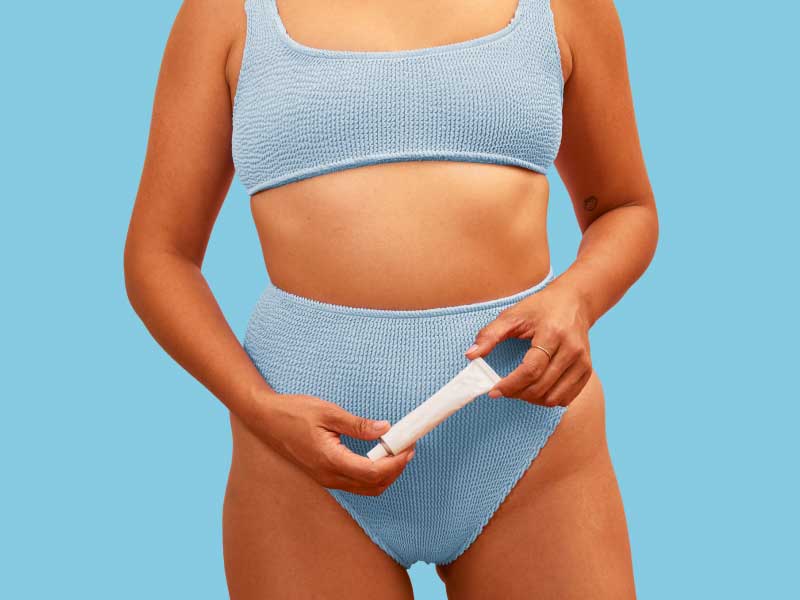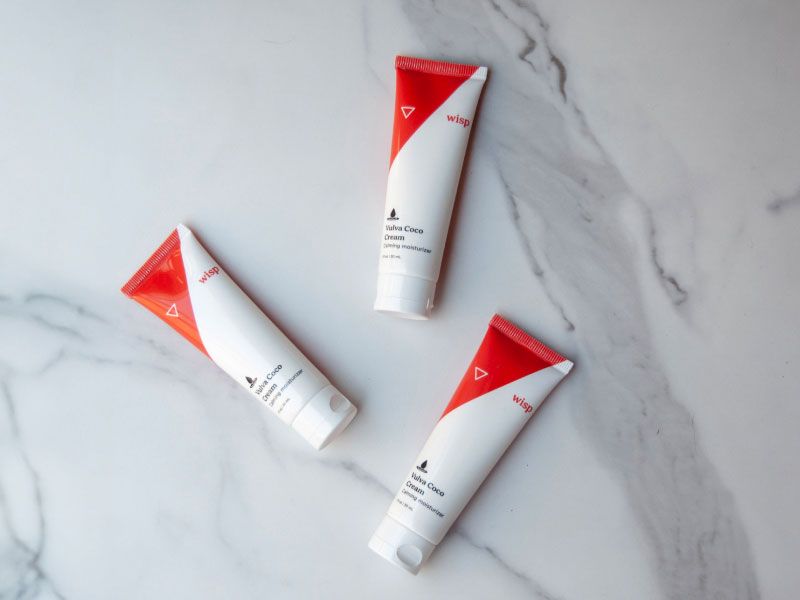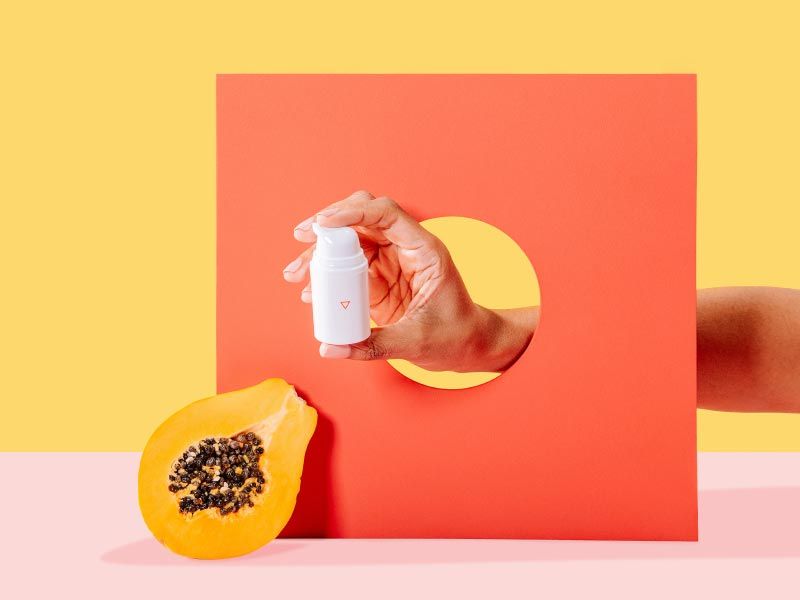
Symptoms, Causes, and
Treatments for Vaginal Dryness
By Simona Byler
August 23, 2024
If you’ve got a vagina, you might already be an expert at recognizing the signs of a yeast infection, a UTI, or another pesky infection. But, what about if things start feeling a little, uh, dry down there? Well, we’re here to talk about just that! Vaginal dryness is irritating, uncomfortable, and all-too-common. It’s usually accompanied by vulva discomfort—but it’s all treatable with some specified cream, lube, and TLC! Let’s dive in and talk about vulva moisturizer, symptoms and causes, and vaginal dryness treatments that can save the day.
What can I use to moisturize my vulva?
Alright, before we can talk about vulva moisturizer, we have to cover some basics. Specifically, what is the vulva exactly? If you’re not 100 percent sure, that’s okay—high school anatomy classes might have left this one out! But if you have a vagina, you have a vulva. They’re not the same thing and they can both be affected by dryness.
The vulva is your genitalia on the outside of your body and it includes a few different parts: the labia majora and minora, the clitoris, the urethral opening, and the vaginal opening. While the parts that make up the vulva are the same, each person’s vulva is unique! It’s important to get to know what’s “normal” for your vulva—smell, feel, moisture level, and discharge—so you can notice if something starts to feel off.
Checking in on your vulva will help you if you develop an infection, but it’s also a great way to notice when your intimate skin is dry or irritated. Vulva irritation can be impacted by different factors, including:
- Shaving or waxing
- Irritating underwear
- Chafing
- Herpes outbreaks
- Decline in estrogen
Vulva dryness is super common—not to mention uncomfortable. Luckily, using a vulva moisturizer can offer immediate results and leave your most sensitive skin feeling soothed and replenished! Just make sure the moisturizer you choose is fragrance-free and doesn’t have any chemical nasties that can cause infection. Wisp’s Vulva Coco Cream features coconut oil, jojoba oil, and aloe vera to naturally deliver silky smooth skin, wherever you need it.
How can I fix my vulvar dryness?
If you’re dealing with vulva or vaginal dryness, it can be tough to focus on anything else. And though this dryness is a common occurrence after pregnancy, while breastfeeding, and during menopause, that doesn’t mean it’s an unavoidable part of life! Let’s look at the best ways to combat and fix vulva dryness so your intimate skin can stay hydrated and happy.
Keep things clean, dry, and free of irritants: Your vagina is self-cleaning and you should never douche or put cleansing products inside it! Your vulva, however, can be cleaned—but only with fragrance-free and gentle cleansers. Our fave sensitive skin cleanser? Balancing Wash, obviously! Avoiding harsh ingredients and irritants around this sensitive skin is the first step to fixing any vulva dryness you’re experiencing.
Be mindful of underwear and hair removal: Wearing underwear made of cotton or another breathable fabric will help your skin stay dry and avoid irritation. Change out of sweaty clothes or wet bathing suits quickly, washing them with gentle laundry detergents. And if you choose to shave or wax your bikini area, make sure to moisturize afterward and be gentle with your skin!
Stay moisturized, hydrated, and safe out there: We’re all in our skincare era out here, and that includes incorporating a vulva moisturizer into our routine! We love our Vulva Coco Cream, as it’s clinically formulated to soothe itching and irritation while improving skin elasticity. And while drinking water doesn’t actually lead to more hydrated skin, a healthy diet and proper hydration will lead to a healthier you, and a healthier vulva. All that plus practicing safe sex and your vulva will be cared for and unstoppable. 💪

Vulva Coco Cream
Starting at $15
Keep your bikini line silky smooth with our all-natural, fragrance free intimate moisturizer.

Non-Hormonal Vaginal Moisturizer
Starting at $60
Hormone-free moisture for all life stages, including breastfeeding, postpartum, and menopause.
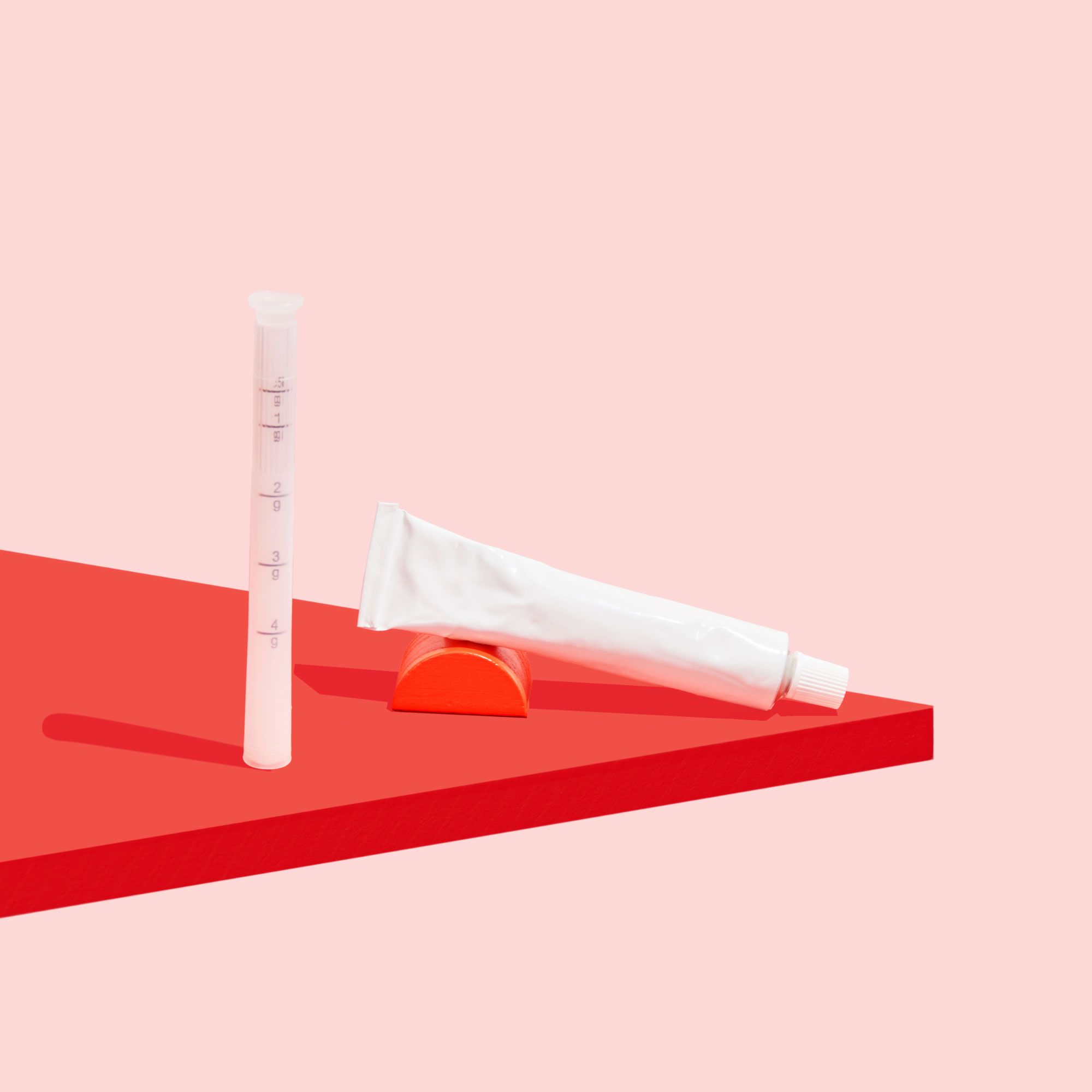
Estradiol Vaginal Cream
Starting at $20
A hormonal cream that soothes vaginal dryness caused by menopause, or during postpartum, especially with breastfeeding.
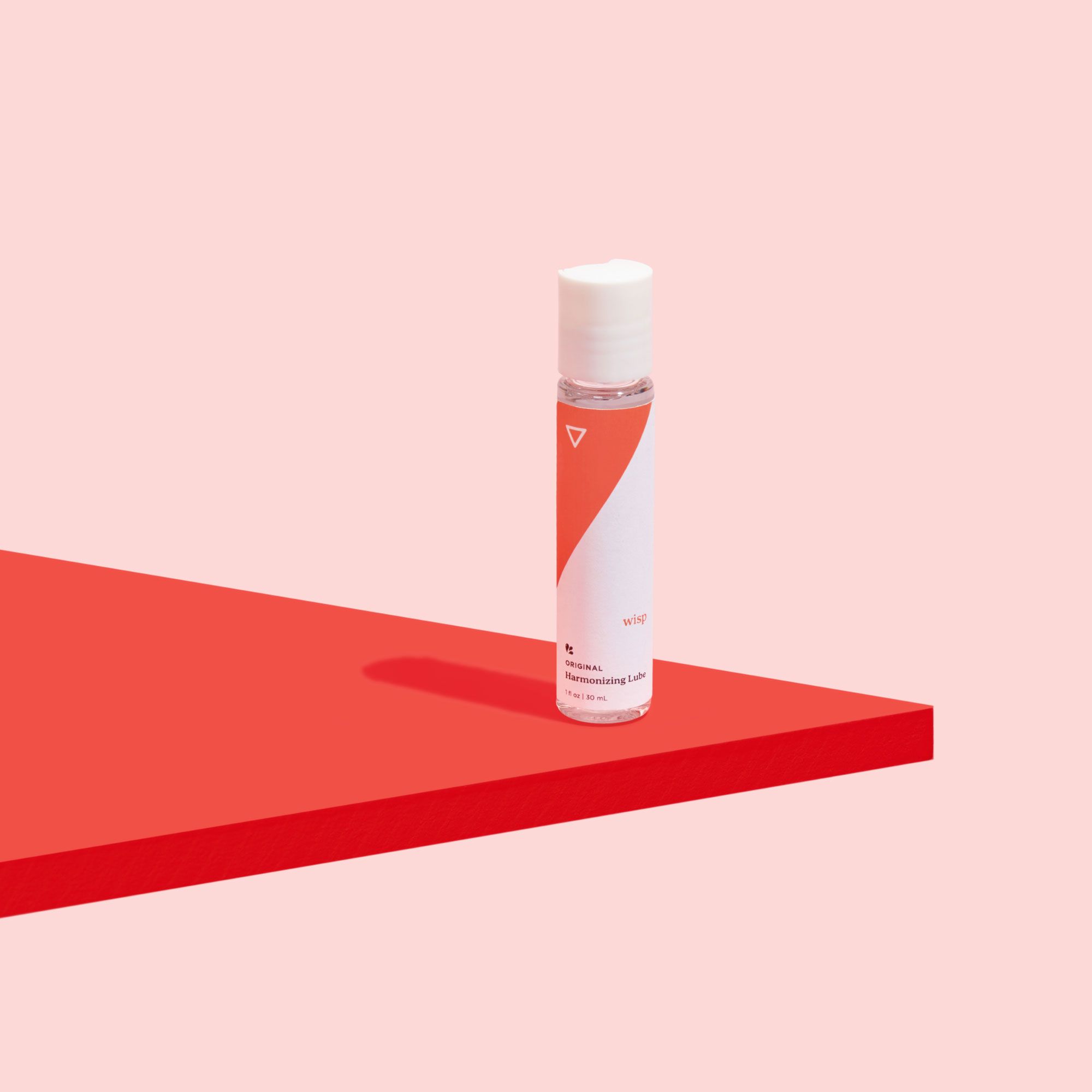
Original Harmonizing Lube
Starting at $10
Silicone-based to reduce friction and make sex easier, more pleasurable, and more fun.
Symptoms of vaginal dryness
Okay, now that we’re all clear on external genital irritation and how to soothe it with vulva moisturizer and care, it’s time to talk about internal irritation—aka vaginal dryness. Vaginal dryness can happen to women of all ages, though it’s most common during periods of hormonal change like menopause. Vaginal and vulvar dryness usually happen at the same time and are grouped together in what’s called vulvovaginal atrophy.
Perhaps the most important thing to know about vulvovaginal atrophy is that it’s treatable! If you start to feel any symptoms of vaginal dryness, know that:
- It’s a part of life and aging, but it's avoidable
- You don’t have to suffer in uncomfortable silence
- You can absolutely talk to a healthcare provider for help
With all that in mind, let’s look at the symptoms of vaginal dryness, so you know what to watch out for! Symptoms and sensations of vulvovaginal atrophy include (1,2):
- Vaginal discomfort, irritation, or pain
- Thinner and less elastic vaginal skin
- Pain during sex, known as dyspareunia
- Reduced vaginal lubrication
- Needing to pee more frequently
- Not being able to hold in your pee
- Recurrent UTIs or yeast infections
Unsurprisingly, you might not feel like having sex when experiencing these symptoms. You can always count on lube and plenty of foreplay to help keep things slick, but the most important thing is to listen to your body and trust its signals.
What causes vaginal dryness?
Dealing with vaginal dryness is painful, frustrating, and might leave you wondering what caused it. Like we mentioned, vaginal dryness is often caused by a change in hormones, specifically a decrease in estrogen production. Estrogen production drops during menopause and about 50 percent of postmenopausal women experience vulvovaginal atrophy (3).
That said, menopause isn’t the only reason you might feel a little dry down below! Women of all ages can experience symptoms and seek treatment for vaginal dryness with success. Common causes of vaginal dryness include:
- Hormonal changes: Childbirth, breastfeeding, perimenopause and menopause can lead to a decrease in estrogen levels and cause dryness
- Medications: Certain medications impact your hormones and can cause vaginal dryness, including birth control pills, antidepressants, antihistamines, and endometriosis or uterine fibroid treatments (4)
- Medical procedures: Cancer treatments, such as chemotherapy, or surgical removal of the ovaries affect your hormones and can lead to vaginal dryness (4)
- Health conditions: Diabetes can impact arousal and lubrication (5) and an autoimmune disorder called Sjogren's syndrome reduces bodily moisture, including in the vagina
- Stress and not enough foreplay: This one’s pretty self-explanatory! Excessive stress can affect how you’re feeling about sex and jumping into penetration too quickly might leave you feeling a bit dry and uncomfortable
How to treat vaginal dryness
Good news alert! The symptoms are no fun, but vaginal dryness treatment can absolutely help solve them! There are a few different ways to treat dryness and stop vulvovaginal atrophy from getting worse, depending on the cause. Let’s look at the details!
Topical estrogen: Topical estrogens are an effective treatment of vaginal dryness and vulvovaginal atrophy, specifically for those whose dryness is caused by menopause, breastfeeding, or childbirth. Wisp’s Estradiol Vaginal Cream provides this treatment as a cream, which delivers a localized dose of estrogen and carries fewer risks than taking systemic estrogen. It works overtime to combat lowered estrogen levels and rejuvenate the vaginal tissue and moisture.
Vaginal moisturizer: If a non-hormonal vaginal dryness treatment is better suited for your system, then a vaginal moisturizer is your best bet! Plus, studies have shown that hormone-free vaginal moisturizers can improve vaginal dryness, relieve painful sex, and improve daily life when compared to a topical estrogen cream (3)! That makes Non-Hormonal Vaginal Moisturizer a perfect option for those experiencing mild or moderate vaginal dryness. That said, a non-hormonal vaginal moisturizer won’t improve elasticity or help out with other symptoms associated with decreased estrogen levels.
Lubricants: We’ve said it before and we’ll say it again! A little (a lotttt) of lube never hurt anybody. Keep a stash of Harmonizing Lube—or toy-safe lube if you prefer—in your bedside table to help keep vaginal dryness from interrupting your nights in.
Lifestyle choices: Certain lifestyle choices can also impact vaginal dryness and shouldn’t be ignored when it comes to treatment! Smoking cigarettes changes how your body handles estrogen—and increases vaginal dryness (2). Managing stress, maintaining a healthy diet, and using a vaginal moisturizer can all help keep dryness and discomfort from taking a toll.
Feeling relieved? We sure hope so! While vulva and vaginal dryness is a common issue, that doesn’t mean you can’t do anything to solve it! Take time to understand your unique symptoms, what’s causing them, and how you can start treating them. And if you need any help along the way, we are so here for you.
